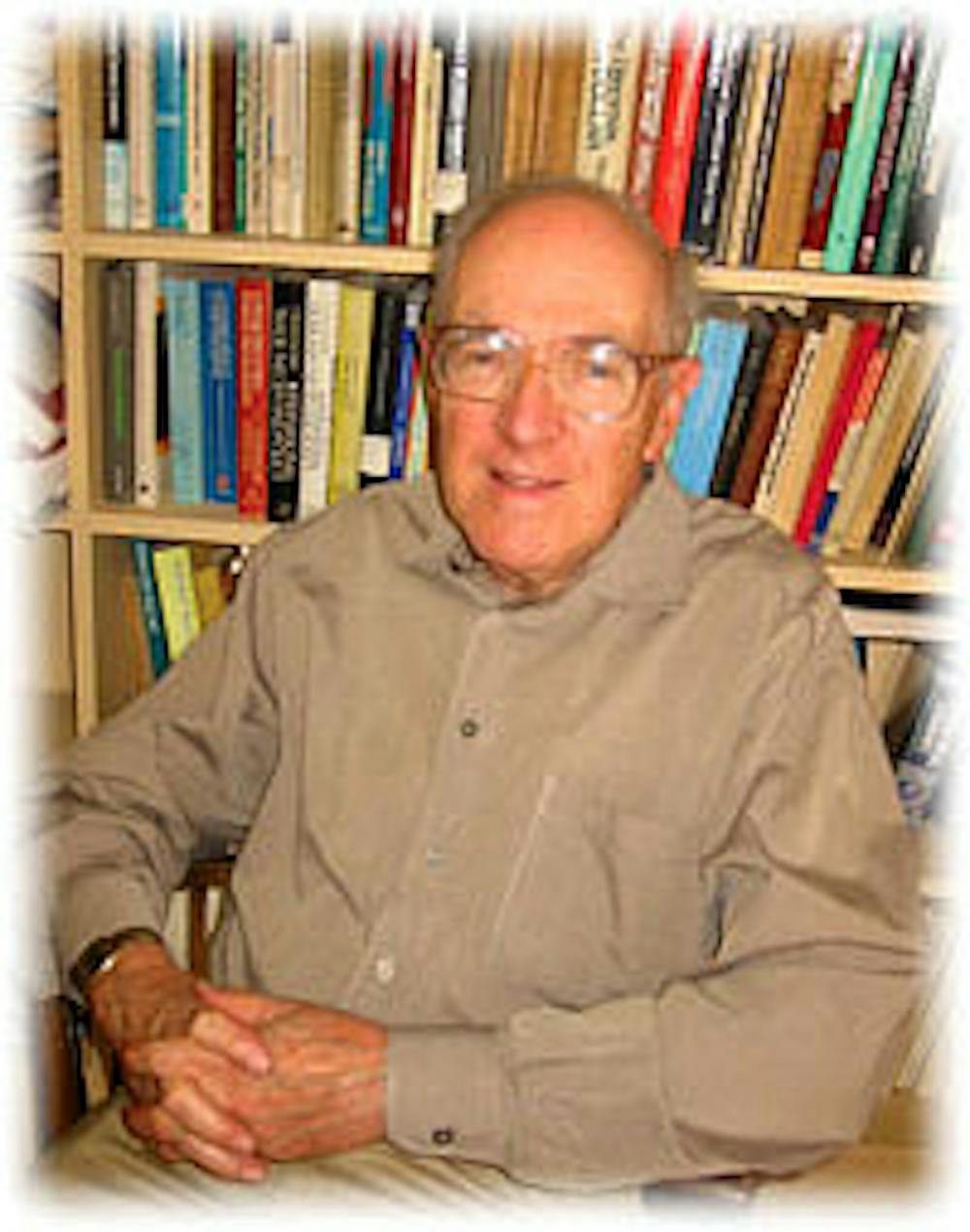Examining a photo of a happy baby boy, Professor Emeritus of Economics George Borts smiled.
“I don’t have enough hair for a middle part anymore,” he chuckled, comparing his baby photo to his appearance now, 85 years later.
After 63 years of teaching, Borts retired from Brown at the start of the academic year.
Borts has mentored renowned alums including Janet Yellen ’67, current vice chair of the Federal Reserve’s Board of Governors.
Though Borts’ passion for teaching did not change during his six decades at Brown, he has witnessed tremendous transformations on campus, he said. He watched the Wriston Quad’s development, the Rockefeller Library’s construction and the List Arts Center’s sudden emergence, he said.
“There was one telephone in the whole Robinson Hall. There was a secretary who would call you down when you got a telephone call. … You didn’t pull your phone out of your back pocket,” he said.
First quarter baselines
Borts was born Aug. 29, 1927 in New York City, a few years before the Great Depression. Borts said he still remembers noticing hordes of people walking the streets in search of work.
Borts first began to study economics — taught only by one teacher at the time — in high school, he said. Borts remembered being the only student who showed real interest in the subject.
At Columbia, where Borts received his B.A. in 1947, he met an economics professor who had just returned from service in World War II. The two met once a week and pored over John Maynard Keynes together.
This intimate method of education so inspired and challenged Borts that he soon found himself wanting to be an economist, he said.
When Borts asked his professor what his next steps should be, his professor responded, “There’s a young chap at the University of Chicago named Milton Friedman. People seem to like him.”
Borts enrolled at the University of Chicago where he earned a Master’s degree in 1949 under Friedman’s tutelage.
“(Friedman) was extremely controversial — made you rethink everything that you thought was right,” Borts said.
Growth curves
Borts joined Brown’s Department of Economics in 1950 when he was 23 years old.
“I was treated very nicely,” he recalled, “but not as an equal. Sometimes I had an idea that they didn’t pay attention to.”
Borts’ students said they found him captivating in the classroom.
“Professor Borts is truly one of a rare breed of professors whose class lessons are recalled far beyond a semester’s end. ... I was impressed by his dedication to students and unmatched accessibility to us,” said Elizabeth Fuerbacher ’14, a former Herald opinions columnist.
A professor in microeconomics, macroeconomics and international finance, Borts said he boiled down complex theories so his students could not just understand them but question what they understood.
“Can you describe in writing what you’ve read? Can you respond to questions? What are you doing, and why are you doing it?” he said, describing the questions he wanted students to consider.
“Going to Professor Borts’ office hours has been one of my best experiences at Brown. It is unbelievable how, after so many years of teaching, he would still care so much about everything a student had to say,” said Lorenzo Moretti ’14, another of Borts’ former students.
Aside from teaching, Borts served as the chairman of the economics department from 1964-1967 and as an advisor for the Rhode Island chapter of Phi Beta Kappa. He also served as a consultant to the National Science Foundation, Undersecretary of Commerce for Transportation, New England Telephone Company and National Motor Freight Traffic Association.
Borts “brought the department from a little local school place to the national level,” former professor of economics Jim Hanson previously told The Herald.
He is known by all for his mastery of the “one-liner,” Hanson told The Herald. “He showed me not just how to help students, but how to use economics to help people generally. He was always there for good advice — professional and personal.”
Labor vs. leisure
Outside of the classroom, Borts said he enjoys spending time with his family, including his son’s dog Gizmo, and listening to classical music.
On his sabbaticals, Borts said he enjoyed traveling the world — including visits to the London School of Economics, Washington D.C., and Hokkaido, Japan.
He said he has fond memories of his time in Japan with his wife. “My wife had beautiful blond hair. We would walk down the street and she would stop traffic. … A bus would slow down and we would wave at them,” he said.
His experience at Brown has been “fruitful,” he said. “I really got a lot out of it. … I can’t even complain about the food.”
When asked about how it is to be retired, Borts responded, “I’ll let you know.”

ADVERTISEMENT




